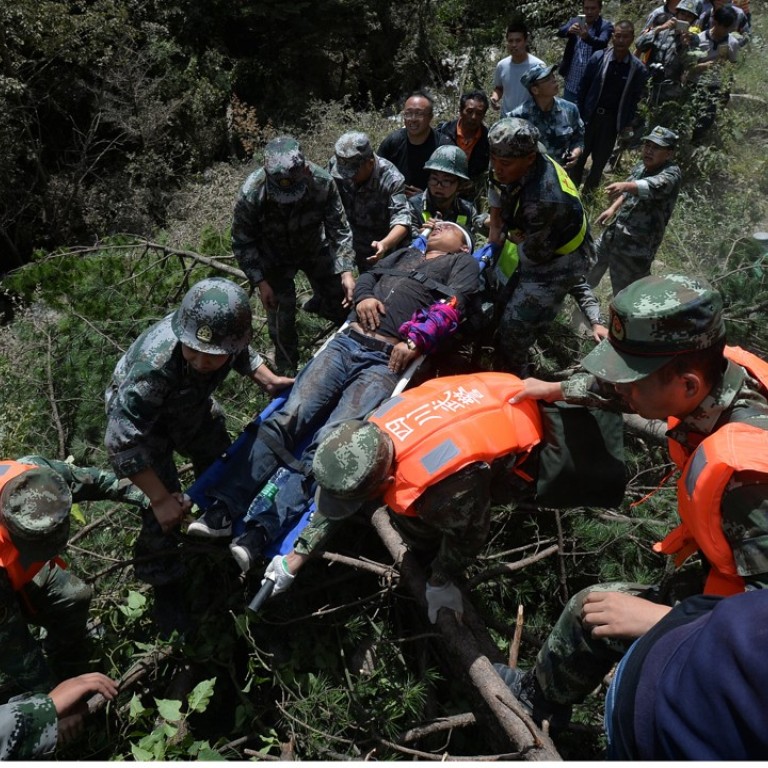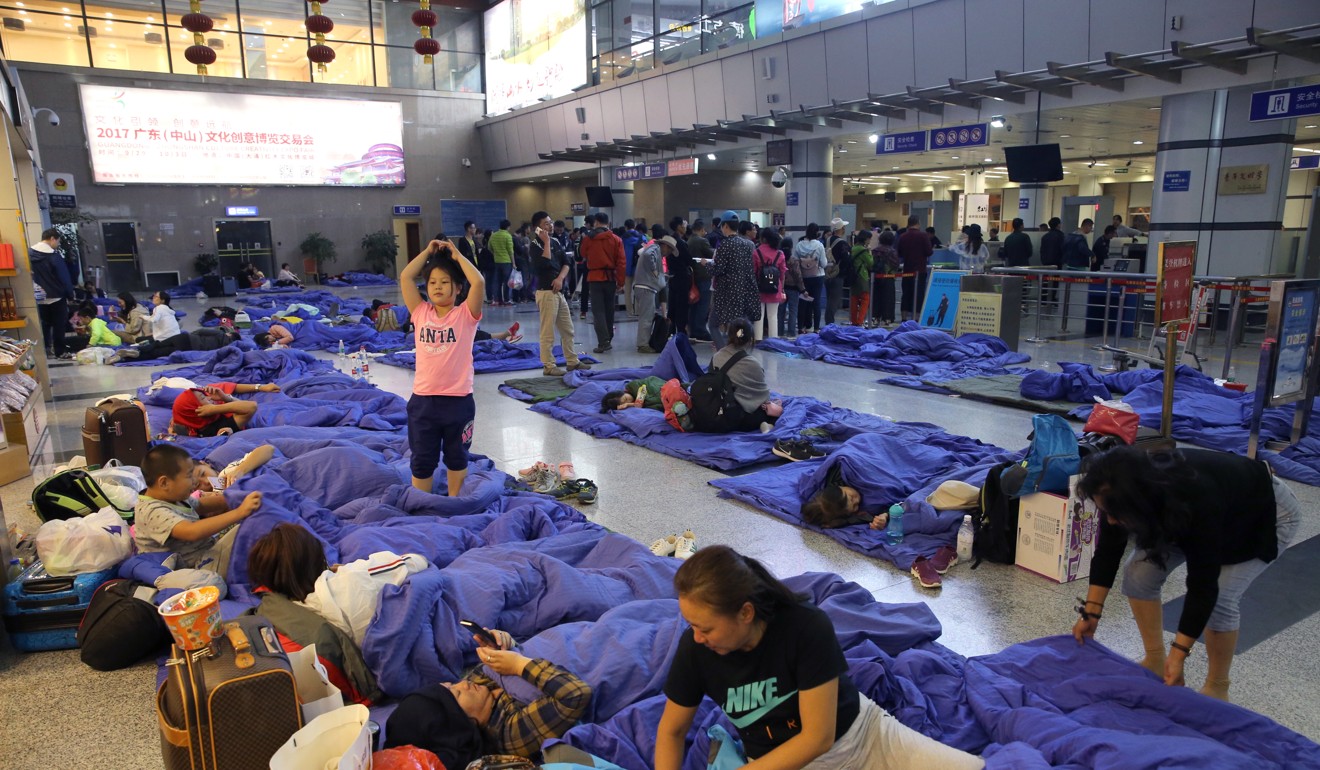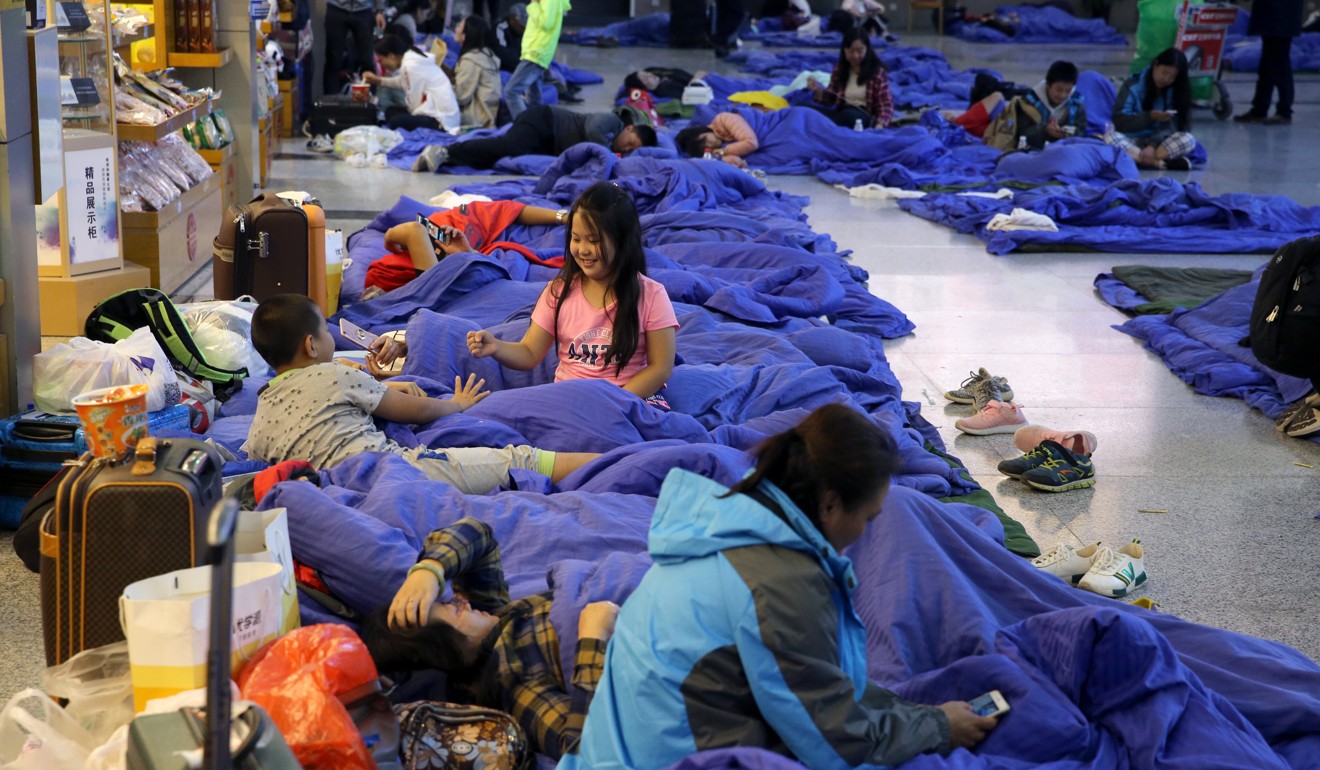
Sichuan earthquake stirs up painful memories of 2008 disaster
Jiuzhaigou quake less deadly than feared but it has brought it all back for survivors of catastrophe nine years ago
The magnitude 7 earthquake that hit one of China’s most popular tourist destinations on Tuesday night has proven less deadly than initially feared, with 19 people killed but tens of thousands of people evacuated to safety.
While the death toll was far lower than the devastating Sichuan earthquake in 2008 that killed more than 69,000 people, it has brought back painful memories for survivors.
Tour guide He Min – who watched the magnitude 7.9 quake swallow up a parking lot in Yingxiu nine years ago – described prying open a lift door with her hands on Tuesday after the power went out at her hotel in Jiuzhaigou.
“I couldn’t believe I was experiencing another earthquake,” she told Shanghai-based news outlet Thepaper.cn.

The epicentre was near the Jiuzhaigou National Park, a scenic area where many tour groups were staying overnight. Some 263 people were injured in the earthquake, with roads and buildings damaged in the remote, mountainous area.
Electricity and communications in the region were restored hours after disruption, while the local airport has continued to operate.
The national park said it had 38,799 visitors on Tuesday. More than 31,500 tourists had been evacuated from the quake zone by Wednesday afternoon, according to Aba Prefecture authorities.
No tourists from Hong Kong had been reported injured, and two Hongkongers who had lost contact with their families were safe, the city’s immigration department said.
Foreigners injured in the earthquake included tourists from Korea, Canada and France, Chinese media reported.
Although the quake happened close to the disaster on May 12, 2008 in Wenchuan county, China’s state media emphasised that Tuesday’s quake was nowhere near the scale of that catastrophe, which is still fresh in the memories of many on the mainland.
A team of counsellors from Hong Kong said they would head to the quake zone to offer help after reading messages on social media from Wenchuan survivors, saying the latest disaster had “reopened their emotional wounds”.
As they did in 2008, Hong Kong and Taiwan offered assistance in the aftermath of the quake.
Hong Kong Chief Executive Carrie Lam Cheng Yuet-ngor, who is currently visiting Beijing, said she was saddened by the casualties, adding the city would support rebuilding work as it had done in the past.
Taiwanese President Tsai Ing-wen said in a tweet on Wednesday that the island was willing to provide assistance with the rescue work, in a strong signal of goodwill. Beijing suspended official contact with the island in June last year, after Tsai took office.
The massive death toll in 2008 prompted the Chinese government to step up quality control of buildings and infrastructure, and strengthen earthquake relief systems. Compared to 2008, rescue forces were in better shape and in a better state of readiness this time. Firefighters and rescue dogs were sent to look for survivors, while military helicopters were deployed to carry the injured to hospitals, according to mainland media.
Of the 19 people who died, five were pulled out of the rubble at a five-star hotel that was damaged in the earthquake. A woman also died at a theatre where a gala show was under way telling the story of the 2008 earthquake. She was an intern with the performance company, it said in a statement. A 10-year-old girl also died at a different hotel, a Beijing News report said.
“We felt the ground shaking and joked that the special effects were getting better,” a tourist watching the show was quoted as saying by Beijing Youth Daily. “Later we realised ... the earthquake was real.”
Thousands of terrified tourists and locals spent the night outdoors, including Yang Yan, who runs a restaurant in the national park. “There were many aftershocks, so we dared not go to sleep,” Yang said, adding that she spent the night sitting on the street with her family. “Everyone was nervous.”
Buses were sent to evacuate people the next morning, and it was a waiting game for Yang and everyone else to get on them. She said she waited six hours then finally got a lift with her brother to the county seat on Wednesday afternoon. “The traffic was fine,” Yang said. “Volunteers were handing out bread and instant noodles along the way.”

At the Jiuzhai Huanglong Airport on Wednesday night, many travellers, some of whom arrived after the earthquake, were waiting for flights out, camped on the floor with blue mats and duvets provided by rescue staff. Many of the flights into Jiuzhaigou had been cancelled.
Hong Kong travel agencies have cancelled more than 20 tour groups to the popular attraction in the coming three weeks due to safety concerns. About 400 people are affected.
On Wednesday morning, a separate magnitude-6.6 quake struck the northwestern region of Xinjiang, injuring at least 32 in the rural area.
Additional reporting by Nikki Sun


